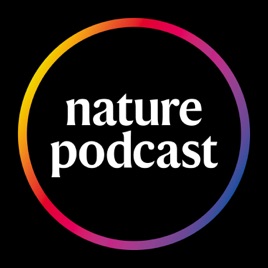
Advertise on podcast: Nature Podcast
Rating
4.5 from
Country
This podcast has
706 episodes
Language
Publisher
Explicit
No
Date created
2005/10/05
Average duration
24 min.
Release period
5 days
Description
The Nature Podcast brings you the best stories from the world of science each week. We cover everything from astronomy to zoology, highlighting the most exciting research from each issue of the Nature journal. We meet the scientists behind the results and provide in-depth analysis from Nature's journalists and editors. Hosted on Acast. See acast.com/privacy for more information.
Podcast episodes
Check latest episodes from Nature Podcast podcast
Audio long read: Chimpanzees are dying from our colds — these scientists are trying to save them
2024/02/26
The phenomenon of animals catching diseases from humans, called reverse zoonoses, has had a severe impact on great ape populations, often representing a bigger threat than habitat loss or poaching.
However, while many scientists and conservationists agree that human diseases pose one of the greatest risks to great apes today there are a few efforts under way to use a research-based approach to mitigate this problem.
This is an audio version of our Feature Chimpanzees are dying from our colds — these scientists are trying to save them
Hosted on Acast. See acast.com/privacy for more information.
more
How whales sing without drowning, an anatomical mystery solved
2024/02/23
The deep haunting tones of the world's largest animals, baleen whales, are iconic - but how the songs are produced has long been a mystery. Whales evolved from land dwelling mammals which vocalize by passing air through a structure called the larynx - a structure which also helps keep food from entering the respiratory system. However toothed whales like dolphins do not use their larynx to make sound, instead they have evolved a specialized organ in their nose. Now a team of researchers have discovered the structure used by baleen whales - a modified version of the larynx. Whales like Humpbacks and Blue whales are able to create powerful vocalizations but their anatomy also limits the frequency of the sounds they can make and depth at which they can sing. This leaves them unable to escape anthropogenic noise pollution which occur in the same range.
Article: Evolutionary novelties underlie sound production in baleen whales
Subscribe to Nature Briefing, an unmissable daily round-up of science news, opinion and analysis free in your inbox every weekday.
Hosted on Acast. See acast.com/privacy for more information.
more
Why are we nice? Altruism's origins are put to the test
2024/02/21
In this episode:
00:45 Why are humans so helpful?Humans are notable for their cooperation and display far more altruistic behaviour than other animals, but exactly why this behaviour evolved has been a puzzle. But in a new paper, the two leading theories have been put the test with a model and a real-life experiment. They find that actually neither theory on its own leads to cooperation but a combination is required for humans to help one another.
Research article: Efferson et al.
News and Views: Why reciprocity is common in humans but rare in other animals
10:55 Research HighlightsThe discovery of an ancient stone wall hidden underwater, and the fun that apes have teasing one another.
Research Highlight: Great ‘Stone Age’ wall discovered in Baltic Sea
Research Highlight: What a tease! Great apes pull hair and poke each other for fun
13:14 The DVD makes a comebackOptical discs, like CDs and DVDs, are an attractive option for long-term data storage, but these discs are limited by their small capacity. Now though, a team has overcome a limitation of conventional disc writing to produce optical discs capable of storing petabits of data, significantly more than the largest available hard disk. The researchers behind the work think their new discs could one day replace the energy-hungry hard disks used in giant data centres, making long-term storage more sustainable.
Research Article: Zhao et al.
20:10 Briefing ChatThe famous fossil that turned out to be a fraud, and why researchers are making hybrid ‘meat-rice’.
Ars Technica: It’s a fake: Mysterious 280 million-year-old fossil is mostly just black paint
Nature News: Introducing meat–rice: grain with added muscles beefs up protein
Subscribe to Nature Briefing, an unmissable daily round-up of science news, opinion and analysis free in your inbox every weekday.
Hosted on Acast. See acast.com/privacy for more information.
more
Smoking changes your immune system, even years after quitting
2024/02/14
00:45 Smoking's long-term effects on immunityIt's well-known that smoking is bad for health and it has been linked to several autoimmune disorders, but the mechanisms are not fully understood. Now, researchers have investigated the immune responses of 1,000 people. Whilst some effects disappear after quitting, impacts on the T cell response lingers long after. The team hopes that this evidence could help better understand smoking's association with autoimmune diseases.
Research article: Saint-André et al.
News and Views: Smoking’s lasting effect on the immune system
07:03 Research HighlightsWhy explosive fulminating gold produces purple smoke, and a curious act of altruism in a male northern elephant seal.
Research Highlight: Why an ancient gold-based explosive makes purple smoke
Research Highlight: ‘Altruistic’ bull elephant seal lends a helping flipper
09:28 Briefing ChatAn author-based method to track down fake papers, and the new ocean lurking under the surface of one of Saturn's moons.
Nature News: Fake research papers flagged by analysing authorship trends
Nature News: The Solar System has a new ocean — it’s buried in a small Saturn moon
Subscribe to Nature Briefing, an unmissable daily round-up of science news, opinion and analysis free in your inbox every weekday.
Hosted on Acast. See acast.com/privacy for more information.
more
Why we need to rethink how we talk about cancer
2024/02/09
For over a century, cancer has been classified by areas of the body - lung cancer, breast cancer, skin cancer etc. And yet modern medical research is telling us that the molecular and genetic mechanisms behind cancers are not necessarily tied to parts of the body. Many drugs developed to treat metastatic cancers have the capacity to work across many different cancers, and that presents an opportunity for more tailored and efficient treatments. Oncologists are calling for a change in the way patients, clinicians and regulators think about naming cancers.
In this podcast, senior comment editor Lucy Odling-Smee speaks with Fabrice André from Institute Gustave Roussy, to ask what he thinks needs to change.
Comment: Forget lung, breast or prostate cancer: why tumour naming needs to change
Subscribe to Nature Briefing, an unmissable daily round-up of science news, opinion and analysis free in your inbox every weekday.
Hosted on Acast. See acast.com/privacy for more information.
more
Cancer's power harnessed — lymphoma mutations supercharge T cells
2024/02/07
In this episode:
0:46 Borrowing tricks from cancer could help improve immunotherapyT cell based immunotherapies have revolutionised the treatment of certain types of cancer. However these therapies — which involved taking someone’s own T cells and reprogramming them to kill cancer cells — have struggled to treat solid tumours, which put up multiple defences. To overcome these, a team has taken mutations found in cancer cells that help them thrive and put them into therapeutic T cells. Their results show these powered-up cells are more efficient at targeting solid tumours, but don’t turn cancerous themselves.
Research article: Garcia et al.
11:39 Research HighlightsHow researchers solved a submerged-sprinkler problem named after Richard Feynman, and what climate change is doing to high-altitude environmental records in Switzerland.
Research Highlight: The mystery of Feynman’s sprinkler is solved at last
Research Highlight: A glacier’s ‘memory’ is fading because of climate change
14:28 What might the car batteries of the future look like?As electric cars become ever more popular around the world, manufacturers are looking to improve the batteries that power them. While conventional lithium-ion batteries have dominated the electric vehicle market for decades, researchers are developing alternatives that have better performance and safety — we run though some of these options and discuss their pros and cons.
News Feature: The new car batteries that could power the electric vehicle revolution
25:32 Briefing ChatHow a baby’s-eye view of the world helps an AI learn language, and how the recovery of sea otter populations in California slowed rates of coastal erosion.
Nature News:This AI learnt language by seeing the world through a baby’s eyes
News: How do otters protect salt marshes from erosion? Shellfishly
Subscribe to Nature Briefing, an unmissable daily round-up of science news, opinion and analysis free in your inbox every weekday.
Hosted on Acast. See acast.com/privacy for more information.
more
Cervical cancer could be eliminated: here's how
2024/02/04
Cervical cancer is both treatable and preventable, and the WHO has called for countries to come together to to eliminate the disease in the next century.
However the disease still kills over 300,000 people each year, and levels of screening, treatment and vaccination need to be stepped up in order to achieve this goal.
These challenges are particularly stark in low- and middle-income countries, where a lack of funding, staffing and infrastructure are obstacles. Vaccine hesitancy, especially in light of the COVID-19 pandemic, is also a key problem.
In this Podcast Extra, two experts share their thoughts on how best to overcome these obstacles, and make elimination of cervical cancer a reality.
Comment: Cervical cancer kills 300,000 people a year — here’s how to speed up its elimination
Subscribe to Nature Briefing, an unmissable daily round-up of science news, opinion and analysis free in your inbox every weekday.
Hosted on Acast. See acast.com/privacy for more information.
more
Ancient DNA solves the mystery of who made a set of stone tools
2024/01/31
In this episode:
0:48 How hominins spread through EuropeAncient stone tools are often uncovered in Europe, but it can be difficult to identify who crafted them, as Neanderthals and Homo sapiens coexisted in the region for several thousand years. The makers of one type of tool found in northern Europe has long puzzled researchers, but now through genetic analysis of nearby skeletal fragments, it has been revealed that they were made by Homo sapiens. The age of these tools suggests that modern humans were more widespread and adaptable to living in colder climates than previously thought.
Research article: Mylopotamitaki et al.
News and Views: Stone tools in northern Europe made by Homo sapiens 45,000 years ago
09:36 Research HighlightsHow a Colombian mountain range lost its root, and what Roman wine may have looked, smelled and tasted like.
Research Highlight: A mysterious mountain range lacks roots but still stands tall
Research Highlight: The clever system that gave Roman wines an amber colour and nutty aroma
15:21 Briefing ChatAnalysis of lab-grown neurons reveals why brain cells grow so slowly in humans, and a genetic therapy for a certain type of deafness shows promise.
Video: Why human brain cells grow so slowly
Science: Gene therapies that let deaf children hear bring hope—and many questions
Subscribe to Nature Briefing, an unmissable daily round-up of science news, opinion and analysis free in your inbox every weekday.
Hosted on Acast. See acast.com/privacy for more information.
more
Audio long read: Long COVID is a double curse in low-income nations — here’s why
2024/01/26
Evidence so far suggests that the prevalence of long COVID in low- and middle-income countries could be similar to that of wealthier countries. For example, by some estimates, more than four million people in Brazil have long COVID.
However, an absence of research on the condition in less-wealthy countries has left advocates hamstrung: few physicians acknowledge that long COVID exists. A lack of data is also hampering efforts to search for the mechanisms of the condition and tailor treatments.
This is an audio version of our Feature Long COVID is a double curse in low-income nations — here’s why
Hosted on Acast. See acast.com/privacy for more information.
more
Toxic red mud could be turned into 'green' steel
2024/01/24
In this episode:
0:46 Turning a toxic by-product into ironRed mud is a toxic by-product of aluminium manufacture, and millions of tonnes of it is produced each year. The majority ends up in landfills, pumped into vast lakes or stored in dried mounds, posing a serious environmental risk. This week, researchers demonstrate how red mud can be reused to make iron, a vital component in the production of steel. As their method uses hydrogen plasma rather than fossil fuels, they suggest it could be a way to reduce the carbon emissions associated with the steelmaking industry.
Research article: Jovičević-Klug et al.
News and Views: Iron extracted from hazardous waste of aluminium production
09:36 Research HighlightsThe economics of next-generation geothermal power plants, and the folded-fabric robot that crawls like a snake.
Research Highlight: Flexible geothermal power makes it easier to harness Earth’s inner heat
Research Highlight: Origami fabric robot slithers like a snake
20:53 Briefing ChatA computational model that predicts a person's likelihood of developing long COVID, NASA finally crack open the lid of OSIRIS-REx’s sample container, and how the ‘Moon Sniper’ craft pulled off the most precise lunar landing ever.
Nature News: Long-COVID signatures identified in huge analysis of blood protein
Johnson Space Centre: NASA’S OSIRIS-REx Curation Team Reveals Remaining Asteroid Sample
Nature News: Japan’s successful Moon landing was the most precise ever
Subscribe to Nature Briefing, an unmissable daily round-up of science news, opinion and analysis free in your inbox every weekday.
Hosted on Acast. See acast.com/privacy for more information.
more
This AI just figured out geometry — is this a step towards artificial reasoning?
2024/01/17
In this episode:
0:55 The AI that deduces solutions to complex maths problemsResearchers at Google Deepmind have developed an AI that can solve International Mathematical Olympiad-level geometry problems, something previous AIs have struggled with. They provided the system with a huge number of random mathematical theorems and proofs, which it used to approximate general rules of geometry. The AI then applied these rules to solve the Olympiad problems and show its workings for humans to check. The researchers hope their system shows that it is possible for AIs to ‘learn’ basic principles from large amounts of data and use them to tackle complex logical challenges, which could prove useful in fields outside mathematics.
Research article: Trinh et al.
09:46 Research HighlightsA stiff and squishy ‘hydrospongel’ — part sponge, part hydrogel — that could find use in soft robotics, and how the spread of rice paddies in sub-Saharan Africa helps to drive up atmospheric methane levels.
Research Highlight: Stiff gel as squishable as a sponge takes its cue from cartilage
Research Highlight: A bounty of rice comes at a price: soaring methane emissions
12:26 The food-web effects of mass predator die-offsMass Mortality Events, sometimes called mass die-offs, can result in huge numbers of a single species perishing in a short period of time. But there’s not a huge amount known about the effects that events like these might be having on wider ecosystems. Now, a team of researchers have built a model ecosystem to observe the impact of mass die-offs on the delicate balance of populations within it.
Research article: Tye et al.
20:53 Briefing ChatAn update on efforts to remove the stuck screws on OSIRIS-REx’s sample container, the ancient, fossilized skin that was preserved in petroleum, and a radical suggestion to save the Caribbean’s coral reefs.
OSIRIS-REx Mission Blog: NASA’s OSIRIS-REx Team Clears Hurdle to Access Remaining Bennu Sample
Nature News: This is the oldest fossilized reptile skin ever found — it pre-dates the dinosaurs
Nature News: Can foreign coral save a dying reef? Radical idea sparks debate
Subscribe to Nature Briefing, an unmissable daily round-up of science news, opinion and analysis free in your inbox every weekday.
Hosted on Acast. See acast.com/privacy for more information.
more
The science stories you missed over the holiday period
2024/01/10
In this episode of the Nature Podcast, we catch up on some science stories from the holiday period by diving into the Nature Briefing.
We chat about: an extra-warm sweater inspired by polar bear fur; the fossil find revealing what a juvenile tyrannosaur liked to snack on; why scientists are struggling to open OSIRIS-REx’s sample container; how 2023 was a record for retractions; and how cats like to play fetch, sometimes.
Nature News: Polar bear fur-inspired sweater is thinner than a down jacket — and just as warm
Scientific American: Tyrannosaur’s Stomach Contents Have Been Found for the First Time
Nature News: ‘Head-scratcher’: first look at asteroid dust brought to Earth offers surprises
Nature News: More than 10,000 research papers were retracted in 2023 — a new record
Scientific American: Cats Play Fetch, Too—But Only on Their Own Terms
Subscribe to Nature Briefing, an unmissable daily round-up of science news, opinion and analysis free in your inbox every weekday.
Hosted on Acast. See acast.com/privacy for more information.
more
Podcast reviews
Read Nature Podcast podcast reviews
hootieman
2022/07/22
Perfect
I love reading Nature but the publisher has given me lots of issues, not paying $200 for zero customer service - so at this point I just listen
Teukolsky
2022/11/15
Occasionally interesting
I enjoy the interviews with scientists about their research. Unfortunately there is quite a bit of what feels like filler material. I wish more time w...
more
fcbgfjhdg
2022/07/12
MS
Very good
FranceJA
2022/05/13
The integrity of its content
All other podcasts I subscribed to during the pandemic have gone like the wind…this one still endures because I trust the integrity of its knowledge a...
more
ersmed
2022/02/02
A must listen to Podcast if you like to stay informed on the latest in Scientific Discovery!
If you consider yourself a scientist who stays informed, this is an essential and you know and listen already. So, for those that want to improve thei...
more
GrantGiesbrecht
2021/06/23
Best Science Podcast
They do a great job presenting cutting edge research in a fascinating and precise, yet easy to understand way. I’d definitely suggest giving Nature a ...
more
brainzmatter
2021/08/26
Great science—terrible presentation
Awful attempt to make the material more “relatable”. Pathetic. This podcast used to be better. The intro is way too long and the presenters lack profe...
more
Optimist runner
2021/06/05
Used to be much better
Still a good source of science news. But the presentation is irritating and distracting. Does every story have to include cute wordplay? You audien...
more
Ain Stolkiner
2021/06/06
not as good as it used to be
The reporters give biased personal opinions on science that make it hard to tell fact from opinion
Kam♣︎♣︎777
2021/02/24
Terse & unintelligible
From the bastion of scientific research publishing, this podcast is an uninspired sampling of random scientific news, that presents little to no conte...
more
Podcast sponsorship advertising
Start advertising on Nature Podcast & sponsor relevant audience podcasts
You may also like these science Podcasts
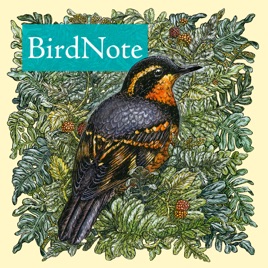
4.8
1065
1956
BirdNote Daily
BirdNote
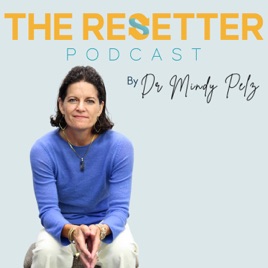
4.8
894
225
The Resetter Podcast with Dr. Mindy Pelz
Dr. Mindy Pelz

4.7
521
120
EverydaySpy Podcast
Andrew Bustamante
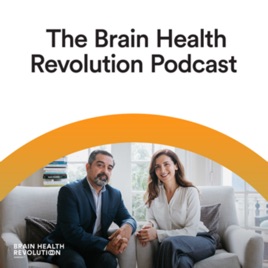
4.9
548
81
The Brain Health Revolution Podcast
Sherzai M.D.

4.7
18
37
Pharm to Table
LC Campeau & Dani Schultz
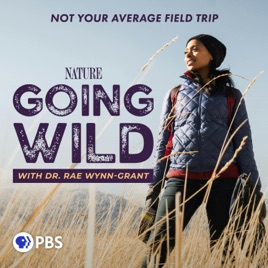
4.8
577
32
Going Wild with Dr. Rae Wynn-Grant
PBS Nature
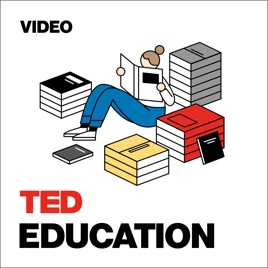
4.1
444
138
TED Talks Education
TED
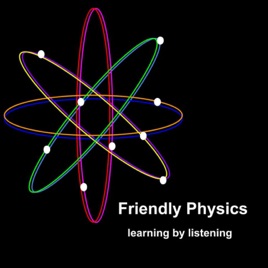
5
1
13
Friendly Physics
Gabriela Gallego
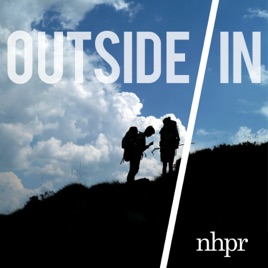
4.7
1286
273
Outside/In
NHPR
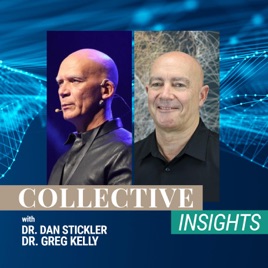
4.8
492
210
Collective Insights
Neurohacker Collective



